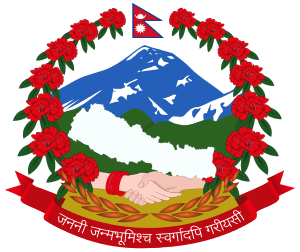National Trust for Nature Conservation
| राष्ट्रिय प्रकृति संरक्षण कोष | |
| Formation | 1982 |
|---|---|
| Website |
ntnc |
The National Trust for Nature Conservation (NTNC), (राष्ट्रिय प्रकृति संरक्षण कोष) previously known as King Mahendra Trust for Nature Conservation is a Nepalese non-governmental organization working in the field of nature conservation.It was established in 1982 as an autonomous non profit organization by legislative law of Nepal. NTNC's mission is to conserve nature and natural resources in Nepal while meeting the needs of the people in sustainable way. Geographically, the Trust activities have spread from the sub-tropical plains of Chitwan, Bardia and Kanchanpur in the lowlands to the Annapurna and Manaslu region of the high Himalayas, including the trans-Himalayan region of Upper Mustang and Manang. Currently, the projects of Trust are divided into three geographical areas - the lowland, the mid-hills (Kathmandu Valley) and the high mountains. The Trust’s activities in the lowlands are based in and around the Chitwan National Park, the Bardia National Park and the Shuklaphanta Wildlife Reserve located in the central, western and far-western development regions of Nepal, through the Biodiversity Conservation Center (BCC) in Chitwan, the Bardia Conservation Program (BCP) in Bardia and the Suklaphanta Conservation Program (SCP) in Kanchanpur. Similarly, the Annapurna Conservation Area Project (ACAP), the Manaslu Conservation Area Project (MCAP) and Gaurishankar Conservation Area Project (GCAP) are three protected areas managed by the Trust in the mountain region. The Central Zoo is the only project of the Trust in Kathmandu Valley. As a new initiative, the Trust has established an Energy and Climate Change Unit to address the emerging issues of climate change through mitigation and adaptation approach and renewable energy technologies. The Trust has also started work on urban environment conservation with the Bagmati River Conservation Project.
Mission Statement[1]
To promote, conserve and manage nature in all its diversity balancing human needs with the environment on a sustainable basis for posterity - ensuring maximum community participation with due cognizance of the linkages between economics, environment and ethics through a process in which people are both the principal actors and beneficiaries.
Projects
NTNC is working in different protected areas of Nepal from plains of Terai to High Himalayas. The projects/programs includes
- Annapurna Conservation Area Project ACAP
- Manaslu Conservation Area ProjectMCAP
- Gaurishankar Conservation Area Project GCAP
- Biodiversity Conservation Centre, Chitwan BCC
- Bardia Conservation Program (BCP)BCP
- Suklaphata Conservation Program SCP
- Parsa Conservation Program PCP
- Central zoo Central Zoo
